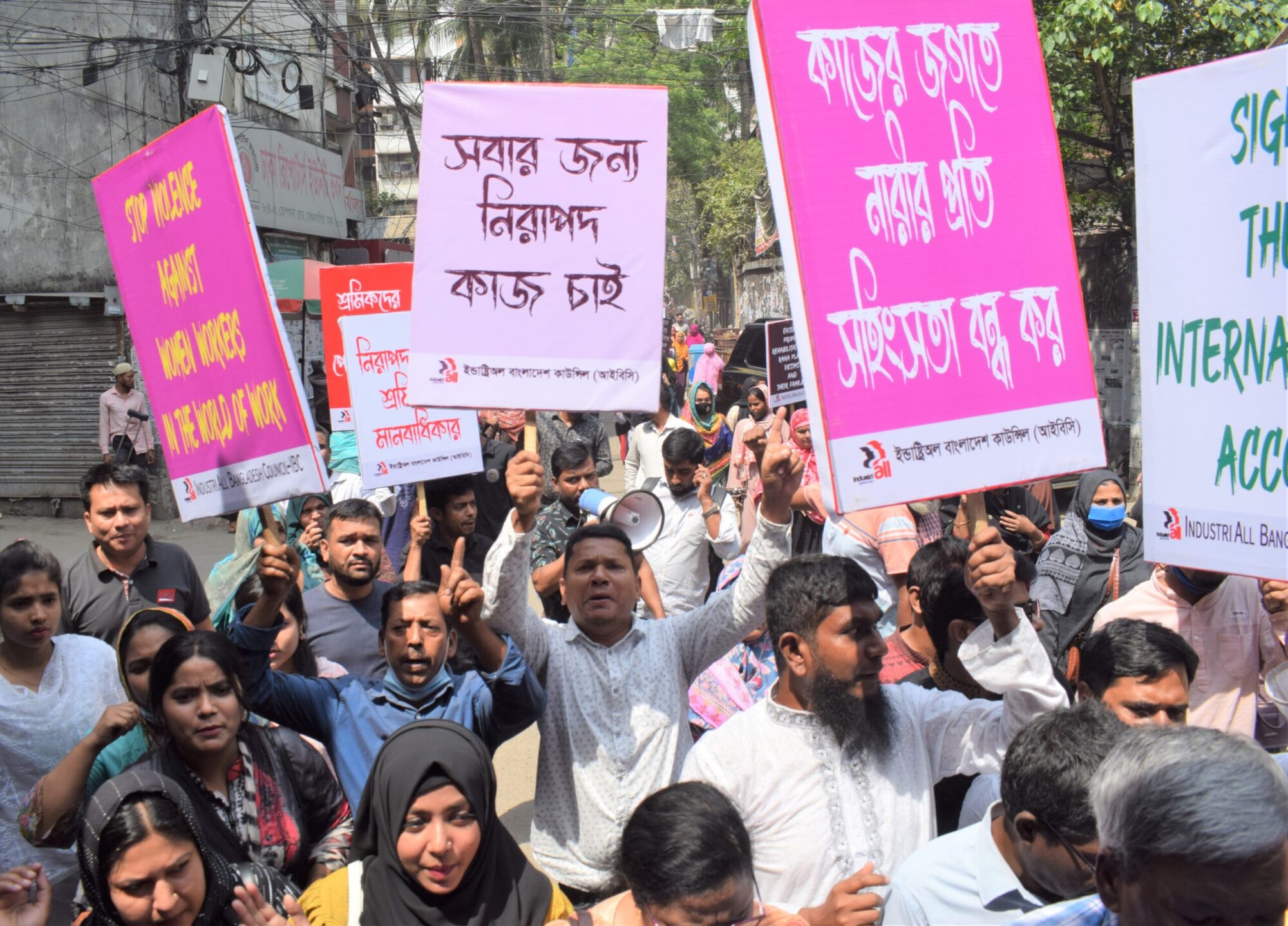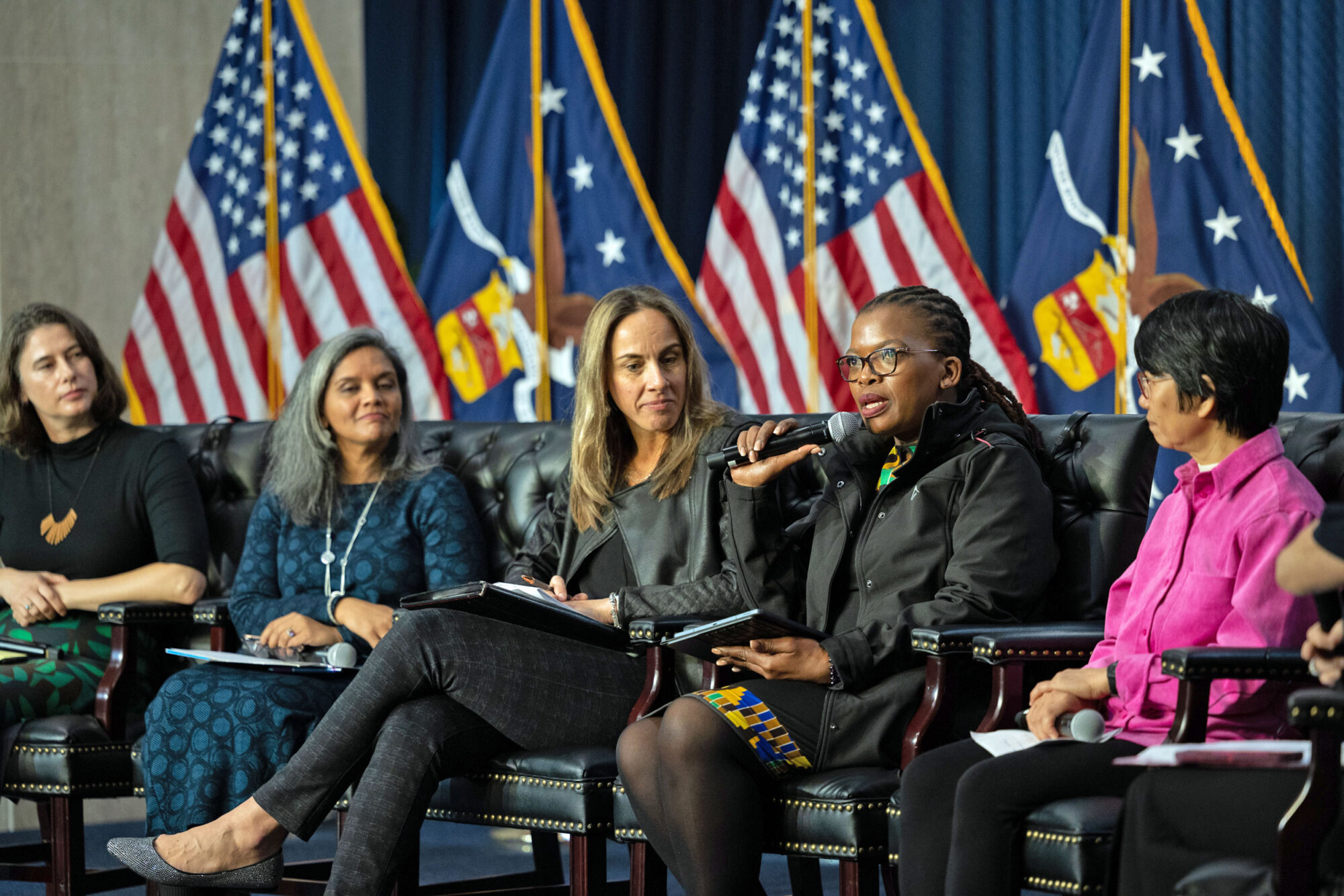Ten years after the multi-story Rana Plaza building collapsed in Bangladesh, killing 1,138 workers and injuring thousands more, garment workers and their unions say that although safety has improved in some instances, much more needs to be done. And fundamental...
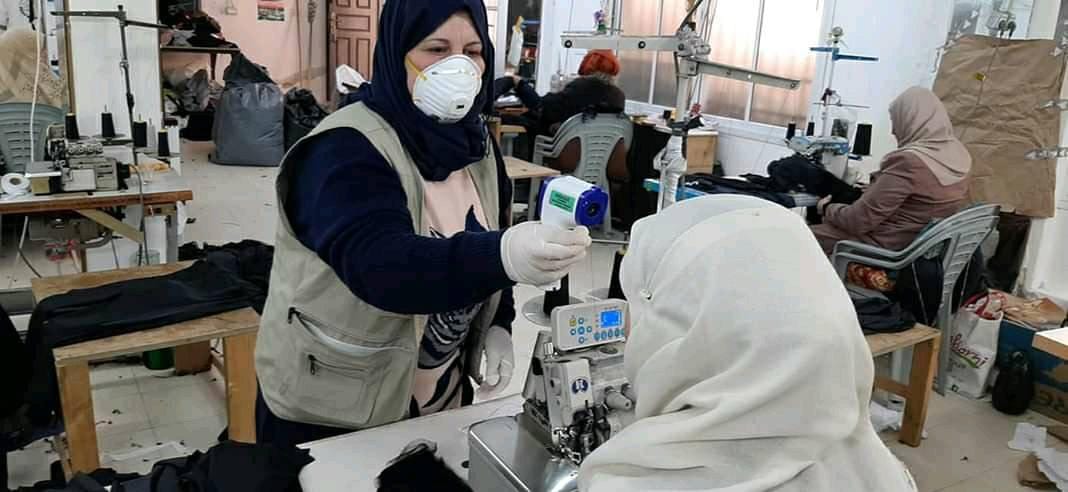
During the COVID-19 pandemic, members of the Palestinian General Federation of Trade Unions, a Solidarity Center partner, tested workers for fever. Credit: PGFTU
Each year, more than 2 million workers die on the job—more than 6,000 a day worldwide. Hundreds of millions more workers a year suffer from non-fatal job-related accidents and illnesses.
The global coronavirus pandemic highlighted and exacerbated the vast inequities facing working people as many risked exposure to the virus without protective safety equipment, tending to sick patients, staffing grocery stores and driving public transport.
In partnership with the Solidarity Center, unions negotiated stepped-up protections and improved wages for workers who risked their lives on the front lines of the crisis, and supported unions as they worked with governments and employers to ensure those furloughed or laid off during the pandemic received wages and social protections such as access to food distribution and unemployment compensation.
Around the world, the Solidarity Center supports networks of unions that are pushing for workplace health and safety measures, such as in Serbia, where unions created a national network of trade union activists to improve workplace safety and health monitoring, and bargain collectively with employers to expand such protections for all workers, regardless of whether they are union members.
On April 28, workers and worker rights activists like the Solidarity Center observe World Day for Safety and Health at Work, an annual day of remembrance for workers who died or were injured on the job and a day to renew the struggle for decent work—family-supporting wages, sick leave and other benefits and safe and healthy working conditions.
UKRAINE: ESSENTIAL INFRASTRUCTURE WORKERS ENDANGERED
Flagging a high number of work-related deaths and life-altering injuries in the country during the first ten months of this year, Solidarity Center partners Confederation of Free Trade Unions of Ukraine (KVPU) and Federation of Trade Unions of Ukraine (FPU) are...
High-Level, Global Initiative: Worker Rights Fundamental to Democracy
In a powerful demonstration of support for strengthening worker rights to ensure thriving democracies and prosperous economies, representatives from governments, unions and philanthropic organizations met in Washington, D.C., yesterday to renew their commitment...
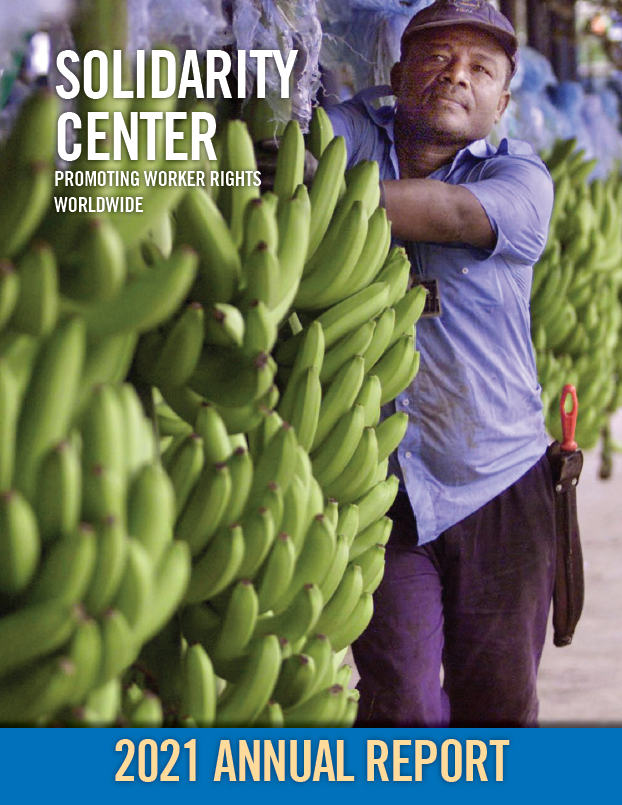
2021 Annual Report
Download here.
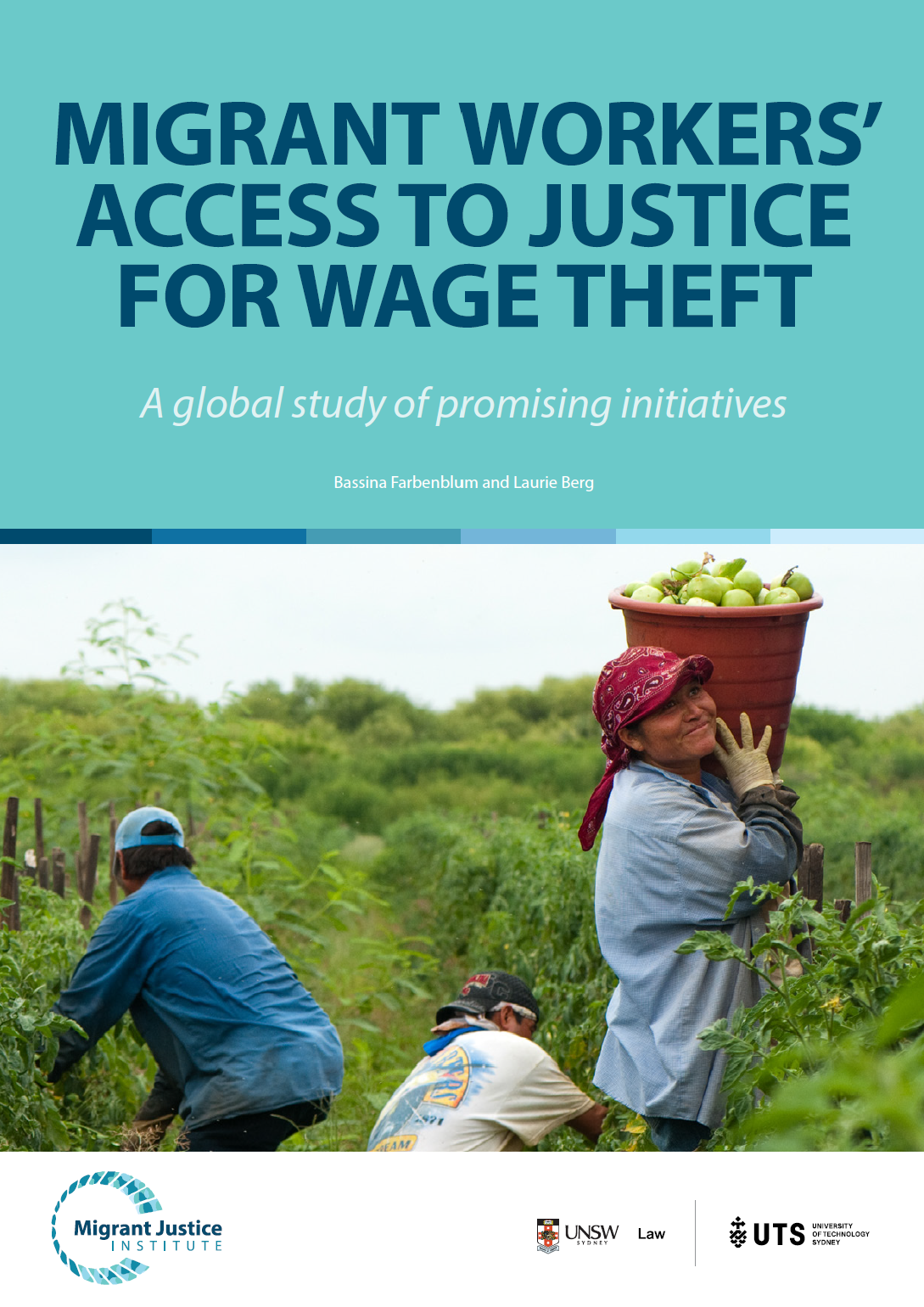
Migrant Workers’ Access to Justice for Wage Theft: A Global Study of Promising Initiatives
The report identifies initiatives from around the world that enable migrant workers to obtain redress for wage theft through administrative and judicial mechanisms. These initiatives shift risks and burdens of wage recovery away from workers and onto government and...
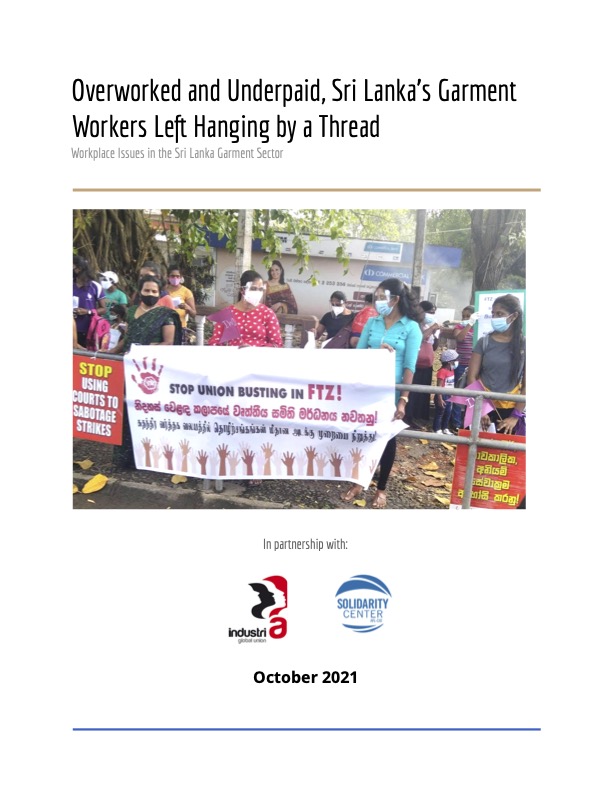
Overworked and Underpaid, Sri Lanka’s Garment Workers Left Hanging by a Thread
A survey of garment workers in Sri Lanka, conducted in partnership with Solidarity Center and IndustriALL, found employer opposition and harassment has limited their ability to form unions and address workplace rights violations such as increased workloads and work...
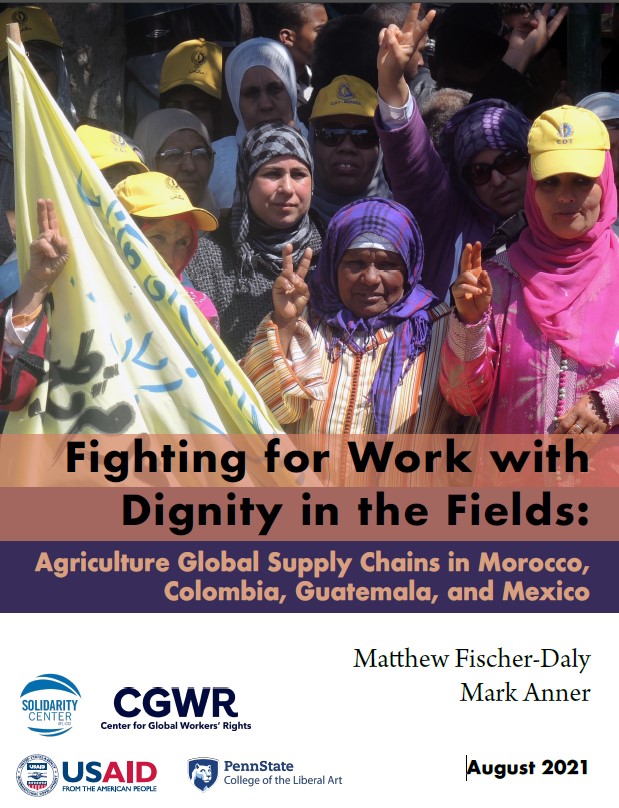
Fighting for Work with Dignity in the Fields: Agriculture Global Supply Chains in Morocco, Colombia, Guatemala and Mexico
Where unions establish collective bargaining, they initiate the strongest mechanism for protecting agricultural workers’ rights, health and dignity. Through analysis of five agribusiness sectors—including palm oil in Colombia, bananas in Guatemala, strawberries in...
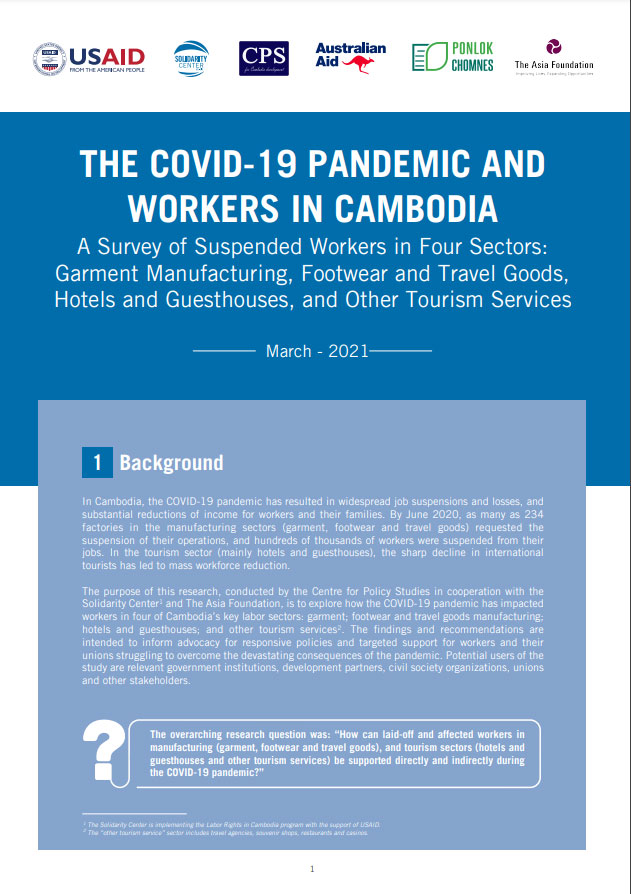
THE COVID-19 PANDEMIC AND WORKERS IN CAMBODIA
As a new wave of COVID-19 hits Cambodia, a new study recommends urgent action to ensure garment and tourism workers workers do not experience widespread loss of jobs and wages as they did in 2020. The Center for Policy Studies survey is supported by Solidarity Center...
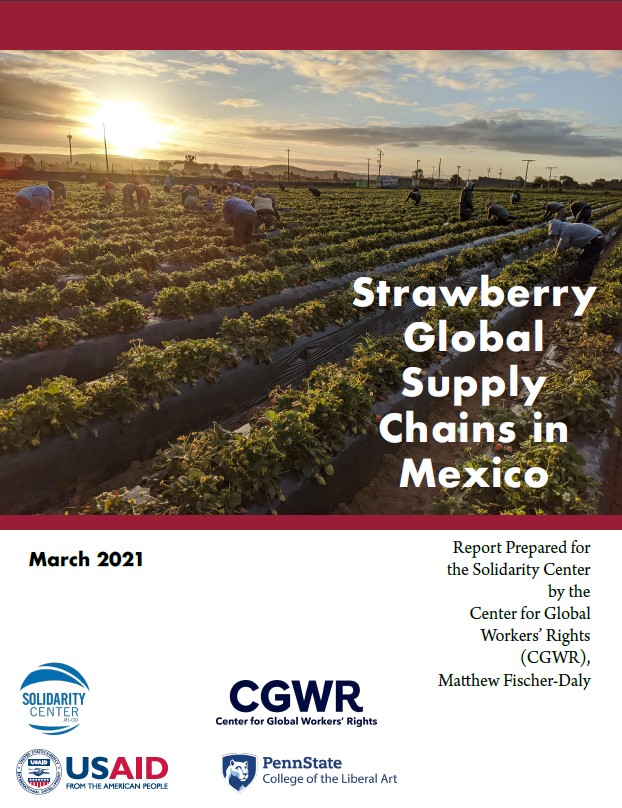
Strawberry Global Supply Chains in Mexico
The governments of Mexico and the United States have supported the growth of the Mexican berry sector by creating conditions for a cheap supply of labor and profit growth. Mexican field workers receive an estimated 12 cents per pound of strawberries sold in U.S....

